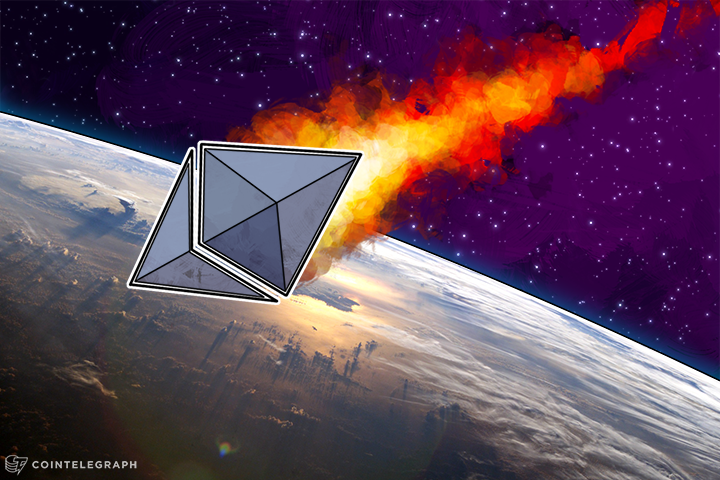As Ethereum finally began trading on major exchanges over the August 8 weekend, the price fell dramatically in what has been called by traders as the “Ether dump.”
The price of Ethereum's native coin went from roughly US$2.50 to about US$0.75 per Ether at the time of writing. When exchanges like Kraken and Poloneix started accepting deposits, the Ethereum development team asked them to hold and wait for a 24 hour period worth of confirmations to verify network stability.
While Gatecoin and Poloneix followed suite, Kraken allowed verified traders who offered collateral, to sell Ether early, bringing most of the volume to their site for the hours to come. As a result, there was a 100% difference in price between Poloneix and Kraken during the early hours of August 8.
Kraken has acknowledged that they should have informed the community about their plans in advance or at least have made them clearer. Nevertheless, this left some traders discontent with Kraken, since by the time other exchanges allowed trading, the price had plummeted.
Even after the correction of the price, Ether is still trading multiple times over the price of the IPO last summer of 2014, which placed the coin at around $0.30 cents USD. So a good deal for many.
The following exchanges are confirmed to be trading Ethereum as of the time of writing. Meanwhile, Yunbi and Crypty who were expected to trade ETH as well, have yet to open their trading floors to the coin.
- Gatecoin.com
- ShapeShift.io
- Kraken.com
- Poloniex.com
- Bitmex.com
- Bittrex.com
- NXT asset exchange as SuperEther
- Yunbi (Not Trading Eth Yet)
- Crypsy (Not Trading Eth Yet)
Development continues
Despite the price roller coaster, Ether developers wasted no time submitting contracts to the blockchain and putting the network to the test. One redditor by the name of aedigix claims to have bought the first Papa John's Pizza . . . card, with Ether. Simulating the 10,000 Bitcoin Pizza purchase now famous from back in 2010, which at today's prices would be worth a staggering US$2.6 million.
He also claims to have submitted “the first Ethereum transaction, the first Ethereum transaction with a message, and the first zombie contract” during an interview with Cointelegraph.
More smart contracts have followed since, including three decentralized pyramid schemes, as well as at 'King of the hill game' which rewards whomever stays ontop of a novel kind of gambling game, with 25% of deposited funds.
The rules of the game read:
“Whenever someone calls the ‘touch’ function and sends more than 1% of the current balance in the contract, this person becomes the ‘receiver’ or ‘king of the hill.’ When someone else calls the "touch" function, this person becomes ‘king of the hill.’ If no else calls the ‘touch’ function for 200 blocks in a row, the current "king of the hill" will get 25% of the balance in the contract. So basically the goal is to stay the king of the hill for 200 consecutive blocks.”
Another project making headlines and worth keeping an eye on is Augur, the decentralized trading market on top of Ethereum that will be launching their crowdsale on August 17.
Long term
Given that both IBM and Samsung are betting on Ethereum long term, the price in the long term should stabilize. Take this short video as example of IBM and Samsung publicly endorsing the decentralized, peer-to-peer nature and power of the Ethereum protocol.


